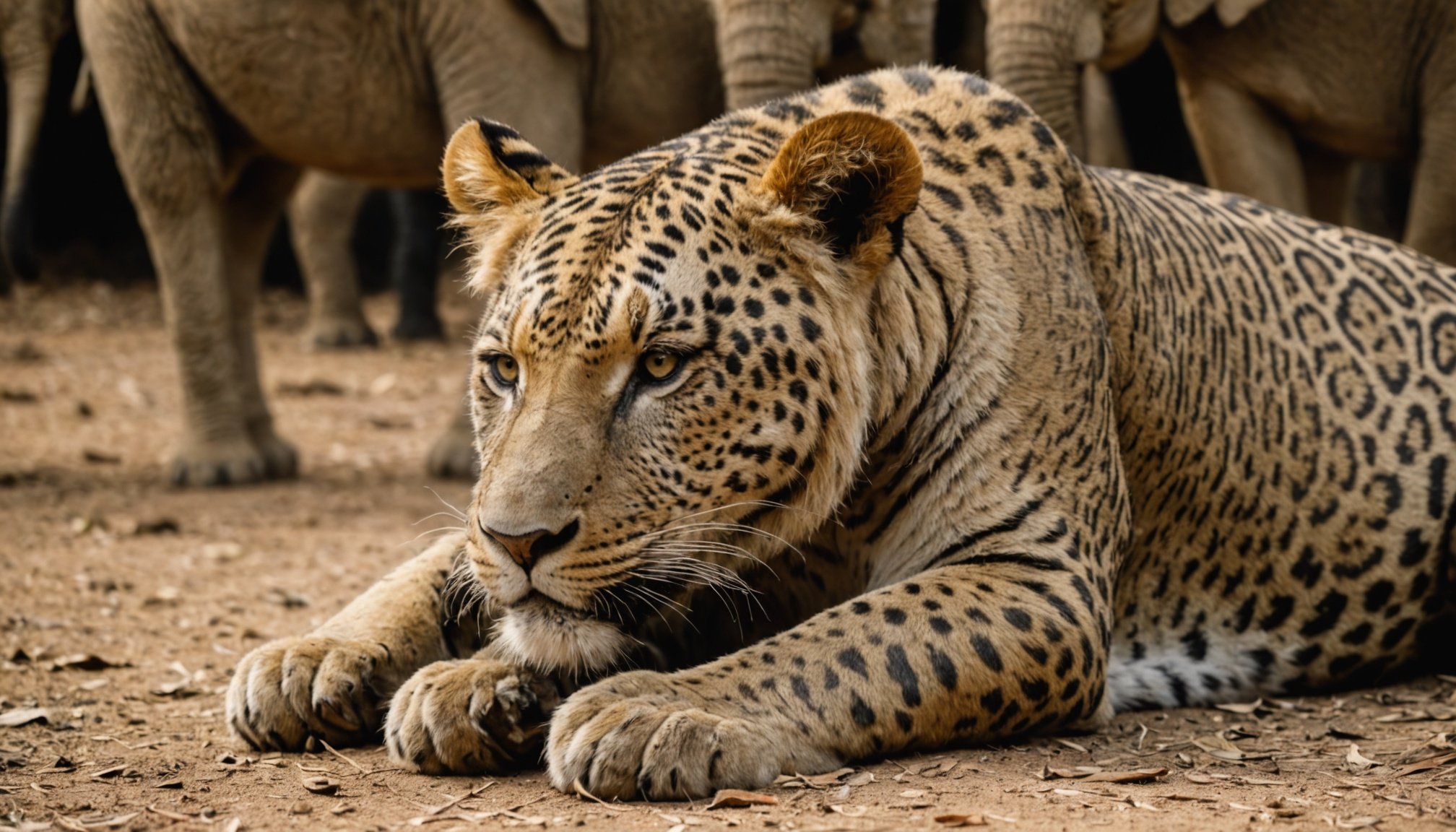Illegal wildlife trade is a pressing issue in the UK, putting countless species at risk and damaging ecosystems. Understanding how to report suspected incidents empowers you as a citizen to take action. This guide provides essential steps and resources, enabling you to make a real impact in the fight against wildlife crime. Together, we can protect our planet's biodiversity and ensure a sustainable future. Join the movement and help safeguard the environment.
Understanding Illegal Wildlife Trade in the UK
Illegal wildlife trade is a significant environmental crime that poses a severe threat to biodiversity. This illicit activity involves the illegal poaching, smuggling, or trading of wildlife species and their derivatives. It disrupts ecosystems and contributes to the decline of species populations, some of which are already endangered. In the UK, the illegal wildlife trade has been linked to broader environmental issues, affecting not only the species involved but also the health of entire ecosystems.
Sujet a lire : Top Tips for UK University Students to Effectively Tackle Student Loan Debt
Statistics reveal troubling trends in the UK, with numerous cases of wildlife trafficking reported annually. These include the illegal trade of birds, reptiles, and even large mammals. The demand for exotic pets and traditional medicines drives much of this trade, underscoring the need for stricter wildlife protection measures.
The impact of wildlife crime extends beyond biodiversity loss. It is intertwined with other environmental crimes, such as habitat destruction and climate change. By addressing illegal wildlife trade, the UK can make strides in tackling these interconnected issues. Enhanced enforcement of wildlife protection laws and increased public awareness are crucial in combating this pervasive problem. Through concerted efforts, it is possible to curb the illegal wildlife trade and preserve the UK's rich biodiversity.
Lire également : Joining the Movement: A Guide for UK Residents to Engage in Community Policing Initiatives in 2023
Legal Frameworks and Policies
In the UK, wildlife protection laws form the backbone of efforts to combat illegal wildlife trade. Key legislation includes the Wildlife and Countryside Act 1981, which safeguards native species, and the Control of Trade in Endangered Species Regulations 2018 (COTES), which aligns with international standards. These laws are designed to regulate the trade, possession, and transport of wildlife, ensuring that endangered species receive the protection they need.
Internationally, the UK is a signatory to the Convention on International Trade in Endangered Species of Wild Fauna and Flora (CITES), which plays a crucial role in global conservation policies. CITES sets guidelines for cross-border wildlife trade, aiming to ensure that it does not threaten the survival of species. The UK's commitment to CITES underscores its dedication to international cooperation in wildlife conservation.
Enforcement mechanisms are vital for the effectiveness of these laws. However, authorities face challenges such as limited resources and the complex nature of wildlife crime networks. Despite these hurdles, agencies like the National Wildlife Crime Unit work tirelessly to enforce regulations and combat illegal activities. Strengthening these efforts is essential for the continued success of the UK's conservation policies.
How to Report Illegal Wildlife Trade
Reporting suspected illegal wildlife trade is crucial for protecting biodiversity and enforcing wildlife protection laws. Here's a step-by-step guide on how to effectively report wildlife crime:
1. Gather Information:
Before reporting, collect as much detail as possible. This includes the location, date, and time of the suspected activity, descriptions of the individuals involved, and any relevant photographs or evidence.
2. Contact Relevant Authorities:
In the UK, report wildlife crime to local police by calling 101 or using their online reporting system. For urgent cases, contact 999. The National Wildlife Crime Unit can also be contacted for advice and support.
3. Use Online Platforms:
Organizations like Crimestoppers provide anonymous reporting options. Utilize their online forms if you prefer not to disclose your identity.
4. Follow Up:
After reporting, if possible, follow up with authorities to provide additional information or updates. Your cooperation can aid investigations.
Timely and accurate reporting is essential. It enables authorities to take swift action, potentially preventing further harm to wildlife. By following these reporting procedures, individuals can play a vital role in combating illegal wildlife trade.
Identifying Suspicious Activities
Recognising wildlife trafficking indicators is essential for community vigilance against illegal trade. Common signs of illegal wildlife trade include unusual activities such as frequent transport of exotic animals, advertisements for rare species, and suspicious transactions involving wildlife products. These activities often occur in locations like markets, pet shops, or online platforms.
Case studies reveal how communities have successfully identified and reported illegal trade. In one instance, residents noticed a pattern of nocturnal deliveries at a local warehouse. Their vigilance led to the discovery of an illegal operation trading endangered reptiles. Such community responses are crucial in tackling wildlife crime.
Engaging with local communities is vital for raising awareness about the signs of illegal trade. Here are some tips:
- Organise workshops: Educate residents on identifying suspicious activities and reporting them.
- Distribute informational materials: Use flyers and posters to highlight wildlife trafficking indicators.
- Collaborate with local authorities: Foster partnerships to ensure community reports are taken seriously and acted upon.
By staying alert and informed, communities can play a pivotal role in combating illegal wildlife trade, ensuring the protection of biodiversity and the enforcement of wildlife laws.
Additional Resources and Support
For those interested in combating illegal wildlife trade, numerous wildlife organizations offer valuable resources and support. These organizations play a pivotal role in conservation efforts, providing education, advocacy, and legal assistance. Some notable entities include the World Wildlife Fund (WWF), the Royal Society for the Protection of Birds (RSPB), and the Wildlife Trusts. These groups offer comprehensive conservation resources and are instrumental in raising awareness about wildlife protection.
Community involvement is essential for effective conservation. Engaging with local groups can amplify efforts to protect biodiversity. Many organizations offer volunteering opportunities, allowing individuals to contribute directly to conservation projects. Activities may include habitat restoration, species monitoring, and educational outreach. This hands-on involvement not only supports wildlife but also fosters a deeper connection with nature.
For those seeking guidance, FAQs on reporting illegal activities and obtaining legal assistance are available through these organizations. They provide step-by-step instructions and contact information for relevant authorities, ensuring that community members can report crimes effectively. By tapping into these resources and participating in community initiatives, individuals can play a significant role in preserving wildlife and supporting conservation laws.












